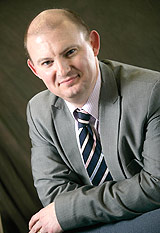
Professor Marc Desmulliez (Director James-Watt Institute)
Microsystems for Manufacture Theme
M.Desmulliez@hw.ac.uk
Area of Research - Micro-assembly and packaging - MEMS manufacturing.
Professor Desmulliez received his French Diploma in Electrical Engineering from the Grande Ecole SUPELEC (1987, Paris, France), top French School in Electrical Engineering, MSc. in Microwave and Modern Optics (University College London, 1987), Tripo III the Diploma in Theoretical Physics (University of Cambridge, 1990) and Ph.D. in Optoelectronics (Heriot-Watt University, 1995).
He worked as an Electrical Power Engineer at SOLLAC in 1989 managing a group of 70 people, in charge of the electrical maintenance of a 4000 strong steel factory in Dunkirk. As a Research Associate in 1995, he conducted research into various optoelectronic devices, including spatial modulators based on MQW Fabry Perot effects and nonlinear interference filters.
Since 1995, he has been Lecturer (1995-1999), Senior Lecturer (1999-2001), Reader (2001-2006) and Professor (2006-present) in the Department of Electrical, Electronic and Computer Engineering. He led this Department from August 2006 until December 2009. In 1999, he created the Microsystems Engineering Centre (MISEC), currently the 4th largest UK research group in MEMS with over 30 Ph.D.’s and RA’s. MISEC specialisation lies in the design, fabrication, packaging and test of non-silicon based MEMS as well as the study in advanced low-cost micro-manufacturing technologies. He successfully spun out the Company MicroStencil Ltd in January 2003 which is now trading in Singapore as a joint venture with DEK, the work leading equipment manufacturer of stencil printer. Prof. Desmulliez has published over 250 articles in his fields of research.
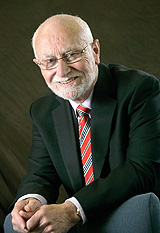 |
Professor
Denis Hall (Director HW-IMRC) FInstP, FOSA, FIEEE, FEPS,
FRSE
Photonics-based Manufacturing Theme
D.R.Hall@hw.ac.uk
Area of Research
- Solid state laser technology, power diode optics,
Laser micro-processing, micro-optics & ceramic
optics fabrication.
Professor Denis R Hall received his BSc (Hons)
in Physics Manchester University, MPhil for research
in cell biology (London University), PhD in Electrical
Engineering (Case Western Reserve University,
USA), and MBA from the Edinburgh Business School.
He won a National Academy of Sciences Research
Fellowship at NASA Goddard Space Flight Center
for research on space-based optical communication,
and then worked on e-beam modelocked lasers at
Avco Everett Research Laboratory in Boston, and
on lasers and IR systems at RSRE, UK before transferring
to Hull University, from where he led the UK Satellite
Laser Ranging project at Royal Greenwich Observatory.
Parallel, research on RF discharge laser excitation
led to new technologies for CO2 high power lasers.
Since 1987, he has been Professor of Photonics
at Heriot-Watt University, Edinburgh, conducting
research on laser device physics and applications.
His group pioneered ultracompact high power
planar waveguide lasers, exploiting concurrent
research in RF discharge physics and optical
waveguides to develop new laser concepts based
on 2-D laser power scaling and novel laser resonators.
Planar waveguide CO2 lasers are now successful
industrial products for several global companies.
Current research concentrates on high power
planar solid state lasers, high power diode
laser optics and laser fabrication of micro-optics,.
This work, part of a general industrial orientation
involving partnership in many industry/university
collaborative research projects, has produced
a series of commercial laser products and industrial
laser-based systems. He has co-founded three
successful start-up companies producing lasers
and photonic systems.
He is a Fellow of the Royal Society of Edinburgh,
the IEEE, the European Physical Society, the
UK Institute of Physics, the IEE, and the Optical
Society of America. He was UK IoP Quantum Electronics
Group Chairman (1990-93), and EPS QEOD Chairman
(1998-2000). From 1998-2007 he was Deputy Principal
(Research and Knowledge Transfer) at HWU. He
is a member of the CSIR Board (S Africa) and
of the Advisory Board of the S African National
Laser Centre. He is Director of the James Watt
Institute for High Value Manufacturing –
incorporating the IMRC at Heriot Watt University.
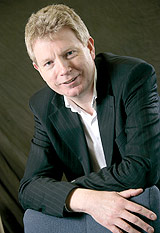 |
Professor
Mike Chantler
Digital Tools
M.J.Chantler@hw.ac.uk
Area of Research
- Surface texture analysis and visualisation.
Professor Chantler received his B.Sc.(First
Class) in Electrical and Electronic Engineering
from Glasgow University in 1979. On graduating
he spent seven years gaining experience in the
software engineering industry during which time
he setup Mandl Ltd to provide computer graphics
expertise in the Netherlands. In 1987 he returned
to Scotland and took up a position as a Lecturer
at Heriot-Watt where he led several EPSRC projects
on underwater imaging. One of these projects
exploited image texture for interpreting real
underwater scenes and this sparked what has
been his main research interest over the last
twenty years. In 1994 he gained his PhD which
developed novel theory on the behaviour of image
texture under changing environmental conditions.
This laid the ground work for a significant
collaboration with Professor Maria Petrou, Surrey
(now Imperial) which used photometric stereo
for the capture and analysis of surface texture
and spawned a series of international workshops
on the synthesis and analysis of texture (2002
Copenhagen, 2003 Niece, 2005 Beijing). In 2006
he chaired the seventeenth British Machine Vision
Conference in Edinburgh which was one of the
most successful, attracting over 450 submissions
from around the world. He has chaired two other
conferences, has served on numerous programme
committees and produced over 120 peer reviewed
papers. He is a director of the British Machine
Vision Association and a director of the spinout
Totallytextures Ltd.
Over the last ten years Professor Chantler
has directed the Texture laboratory at Heriot-Watt.
This lab which started from a strong basis
in the signal processing has gradually changed
its focus to include the quantitative analysis
of human perception of texture. It is probably
unique in the world in terms of its cross-disciplinary
expertise in surface texture.
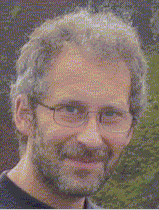 |
Professor
David Corne
D.W.Corne@hw.ac.uk
Area of Research
- Data Mining, multi-objective algorithms and theory, scheduling, web intelligence, neural computation.
Professor
Patrick Green
P.W.Green@hw.ac.uk
Area of Research
- Psycophysics-based analysis of DT users,
human factors and psychology input to DT
interfaces and engineering task analysis.
Experimental design and analysis.
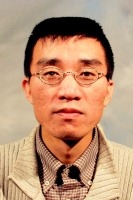 |
Dr
Xichun Luo
X.Luo@hw.ac.uk
Area of Research
- Ultra precision machining technology,
Precision machine tool design and precision
motion control,Ultra precision machining
process modelling and analysis, CAD/CAM and
CNC and Precision surface metrology .
Xichun Luo has substantial experience in ultra precision technologies and also has research interest in nanotechnology and micro-robotics. He began his professional career in nanomanufacturing in 1998 at Harbin Institute of Technology in China, where he obtained his first PhD and two national awards because of his success in molecular dynamics simulation study. During his second PhD study at Leeds Metropolitan University, he has extensive involvement in EPSRC, DTI and some industrial projects. His research activities include modeling and simulation of precision machining processes, conceptual design of five-axis bench type ultra precision milling/grinding centre and precision machined surfaces metrology. In 2004 he joined Cranfield University after completing his second PhD. He was engaged on an EPSRC project, which seeks to develop a first-class ultra precision large freeform grinding machine tool for processing nanometrically smooth and precise complex shape surfaces for ground based Extremely Large Telescope (ELT). He was centrally involved in an IMRC project on ultra precision machining of complex form silicon optics and played a key role in an IMRC project on freeform machining next generation IR optics. At Cranfield he was also involved in ultra precision diamond turning of mid-IR spectrometers for James Web Space Telescope, which will be launched in 2013 to replace Hubble Space Telescope. In 2007, he joined as a lecturer in the Department of Mechanical Engineering within School of Engineering and Physical Sciences at Heriot-Watt University.
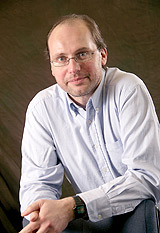 |
Professor
Andrew Moore
Photonics-based Manufacturing Theme
A.Moore@hw.ac.uk
Area of Research
- Optical metrology for laser materials processing.
Manufacturing processes involving thermally
induced stress.
Professor Moore received his BSc in Engineering
Science and PhD in Optical Metrology from Loughborough
University in 1988 and 1992 respectively. From
1992 to 1997 he worked at the Centro de Investigaciones
en Optica, Mexico. He joined Heriot-Watt University
in 1997 and is currently a Professor in the
Department of Mechanical Engineering.
He was an EPSRC Advanced Research Fellow (October
2000 to September 2005) which was assessed as
‘Outstanding’ (the top rating) in
its EPSRC grant review. He is currently a William
Penney Fellow of the Atomic Weapons Establishment
(August 2006 to March 2011). His research interests
include dynamic, full-field optical instrumentation
and its application to engineering measurement,
fringe pattern analysis and thermal forming.
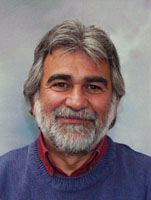 |
Professor
Bob Reuben
R.L.Reuben@hw.ac.uk
Area of Research
- Materials, experimental mechanics, including: structure-property relationships, use as diagnostic indicators in medicine (tissue quality); stress waves in solids for diagnostic engineering; miniature mechanical systems.
Bob Reuben received a BSc in Metallurgy from the University of Strathclyde in 1974 after which he spent 3 years as a Scientific Officer at UKAEA, Dounreay working on industrial research into the chemical and metallurgical performance of fast reactor fuel elements. He then was employed as a Research Assistant at the Open University's Oxford Research Unit, which led to his PhD on Hydrogen Permeation through Metals in 1980. He then carried out postdoctoral work at the University of Strathclyde on structure-property relationships in some novel steels for automotive and structural use. From 1983 to 1985, he was employed as a lecturer at Robert Gordon's Institute of Technology (now RGU) in the School of Mechanical and Offshore Engineering before joining Heriot-Watt University as a lecturer in the Department of Offshore Engineering in 1985. In 1990, he moved to the Department of Mechanical Engineering and became Professor of Materials Engineering in 1995. His research interests generally fall into the area of experimental mechanics, including: structure-property relationships for development of engineering performance of materials and also for use as diagnostic indicators in medicine (tissue quality); development of new, quantitative approaches to analysis of stress waves in solids for diagnostic engineering; and applications of mechanics to miniature mechanical systems to achieve real engineering solutions in millimetre-sized envelopes. He is an Honorary Professor at the University of Edinburgh by virtue of his membership of the Edinburgh Research Partnership (EP) Joint Research Institute of Integrated Systems (JRI IIS).
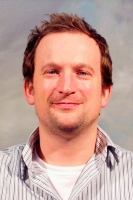 |
Dr
Jonathan Shephard
J.D.Shephard@hw.ac.uk
Area of Research
- Mid-IR transmitting optical fibres and waveguides, microstructured fibres, applications of high power lasers for processing, monitoring and control, integrating high power laser into novel manufacturing processes.
Jonathan received the BA degree in Engineering from Cambridge University, UK, in 1994, and received the MSc (Eng.) degree in 1996 and the Ph.D degree in 2000, both from the University of Sheffield, UK. In 1994 he joined Pilkington Plc, UK, working within R&D after which he returned to study for his MSc (Eng) and PhD within the Department of Engineering Materials, University of Sheffield. At Sheffield his work concentrated on the development of mid-IR transmitting optical fibres and waveguides. In 2003 he joined the Applied Optics and Photonics Group at Heriot-Watt University, Edinburgh, UK, working on the development of novel microstructured fibres and applications of high power lasers for processing, monitoring and control. Now a Lecturer and RCUK Academic Fellow at Heriot-Watt University, he is currently working on developing technologies for integrating high power laser into novel manufacturing processes.
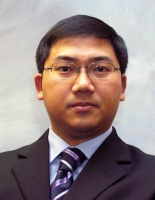 |
Dr
Will Shu
W.Shu@hw.ac.uk
Area of Research
- Sensor technology: microcantilever sensors, biosensors, chemical/gas sensors, tactile sensors, Lab-on-a-chip systems: sensor integrated microfluidic chips, gene synthesis micro-PCR chips. Microbiomechanics: nanomechanics and dyanmics of single cells, mechanotransduction. Micro/nanoactuators: MEMS-based robotic systems for manipulation of single cells and biomolecules. Nanomaterials: tissue-nanomaterials interaction, nanostructured surfaces/particles, nanotoxicity.
Will Shu is a Lecturer in Microengineering at Heriot-Watt University, Edinburgh. Originally from China, he received the M.Sc. degree in advanced materials for micro- and nano-systems from the Singapore-MIT Alliance in 2002, and the Ph.D. degree in electrical engineering from Cambridge University Engineering Department and Nanoscience Centre in 2006. Then he worked as a postdoctoral research associate at Cambridge developing micro- and nano- sensor devices for homeland security applications. In 2007, he joined as a lecturer in the Department of Mechanical Engineering and School of Engineering and Physical Sciences of Heriot-Watt University.
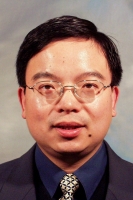 |
Dr
Wei Wang
W.Wang@hw.ac.uk
Area of Research
- Statistical optics, optical information processing, imaging science and their applications to optical metrology and sensing.
Wei Wang received his BSc and DSc in Physics from University of Science and Technology of China, in 1997 and 2001, respectively, and his PhD with summa cum laude in Optics from the University of Electro-Communications, Japan, in 2006. He was a Japanese Government (MONBUKAGAKUSHO) Scholar from 2002 to 2003, Research Fellow of Japan Society for the Promotion of Science (JSPS) from 2003 to 2006, and COE (Center of Excellence) Post-Doctoral Research Fellow from April of 2006. Recently, he took up a lectureship in Department of Mechanical Engineering at Heriot-Watt University, Edinburgh, UK. Dr. Wang's research interests are around statistical optics, optical information processing, imaging science and their applications to optical metrology and sensing. He has published over 60 papers in journals and conference proceedings, and was awarded the best science paper award of the Japan Society for Applied Physics in March 2007 (its highest research award of Optical Society of Japan). He is a member of the SPIE, OSA, and JSAP.
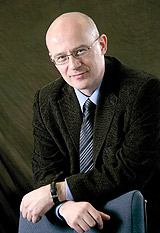 |
Management
Group Administrator
David Nisbet
D.J.Nisbet@hw.ac.uk
Mr Nisbet is Management Group Administrator to the Heriot-Watt IMRC, (HW-IMRC), and the
School of Engineering and Physical Sciences.
As HW-IMRC administrator he is responsible for
co-ordinating and managing key activities of the centre. The role includes responsibility for organising the annual review process, co-ordinating the project approval process
and organising events such as its annual conference. He undertakes a similar role for the newly formed James Watt Institute.
As School Management Group Administrator he represents
his School at University level as
He supports the delivery of the Schools research strategy through undertaking activities such as the production and analysis of performance and benchmarking data and through undertaking research to inform policy development on issues such as REF.
In 2006 he was awarded a Robbie Ewen Fellowship
which he used to fund a study visit to Harvard,
MIT and Boston Universities. After a series of interviews he produced a report on how to support inter-disciplinary
academic research collaboration
He was previously the University Student Records
Officer with responsibility for managing the
|